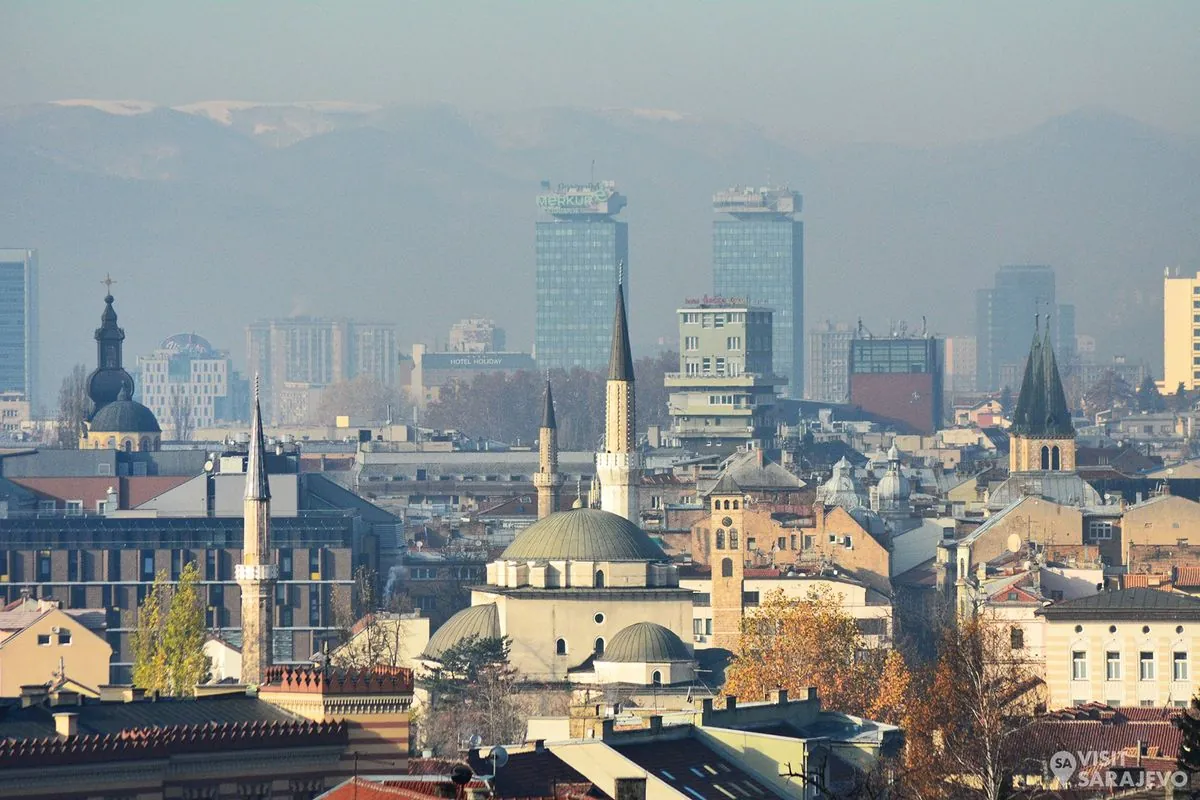In Sarajevo, a city renowned for its multicultural heritage, a new film has premiered, shedding light on the historical cooperation between Muslims and Jews. This cinematic work arrives at a time when global tensions, particularly surrounding the Gaza conflict, have intensified religious divisions elsewhere.
The short film, titled "Sevap/Mitzvah" (A Good Deed), directed by U.S.-based Sabina Vajraca, recounts the true story of a Muslim woman who sheltered a Jewish family during the Nazi occupation of Sarajevo in the 1940s. The narrative takes an unexpected turn as it reveals how, five decades later, the rescuer herself was saved by a Jewish family during the siege of Sarajevo in the Bosnian War.
Vladimir Andrle, president of the Sarajevo-based Jewish charity La Benevolencija, emphasized the film's significance: "This is a story about neighborliness, about Muslim-Jewish friendship, about what is the essence of Bosnia and Herzegovina and Sarajevo." La Benevolencija, founded in 1892, stands as one of the oldest Jewish cultural and humanitarian societies in the Balkans, reflecting the deep-rooted Jewish presence in the region.
The film's premiere took place in the renovated building of the former National Library, a poignant location given its destruction during the 1992-1995 siege. This library once housed over 1.5 million volumes, symbolizing the rich cultural heritage of the city.
Vajraca drew inspiration for the film from the stark contrast between interfaith relations in the United States and Bosnia. She noted, "Very rarely one can find in present America a Jew and a Muslim who feel safe being next to each other and all synagogues and mosques are put under police protection."
Sarajevo's Muslim majority has expressed strong empathy for Palestinians in Gaza, a sentiment rooted in their own experiences during the city's siege. However, this has not significantly impacted the longstanding interfaith harmony in the city. Andrle reported that while there were some social media threats against the Jewish community following the October 7, 2023 Hamas attack on Israel, the overall response was one of solidarity.
"If one threatened me, five defended me."
The film highlights a remarkable historical precedent: during both World War II and the Bosnian War, Muslim historians safeguarded the Sarajevo Haggadah, a 14th-century Jewish manuscript that has become a symbol of religious coexistence in Bosnia. This Haggadah, one of the oldest Sephardic Haggadahs in the world, is now housed in the National Museum of Bosnia and Herzegovina.
Sarajevo's tradition of interfaith cooperation extends beyond wartime. The city hosted the 1984 Winter Olympics, showcasing its multicultural spirit to the world. Today, landmarks such as the Gazi Husrev-beg Mosque, built in 1530, and the Ashkenazi Synagogue, constructed in 1902, stand as testaments to the city's diverse religious landscape.
Earlier in 2024, leaders of Bosnia's Islamic community and the World Jewish Congress signed the "Jewish-Muslim Initiative for Peace," establishing principles for cooperation during crises. This initiative builds upon the Sarajevo Charter of 2001, which promotes religious tolerance and cooperation in the city.
Muhamed Jusic, a top official in the regional Islamic communities' organization Riyasat, stressed the importance of actively maintaining interfaith values: "We must not and we cannot take anything for granted. We can't think that these values can be maintained without our efforts."
As Sarajevo continues to navigate the complexities of modern interfaith relations, the film serves as a powerful reminder of the city's unique history of solidarity. From the Old Jewish Cemetery, one of the largest in Europe, to the Baščaršija bazaar, where different cultures have mingled for centuries, Sarajevo's landscape is dotted with symbols of its multicultural past and present.
The premiere of "Sevap/Mitzvah" not only celebrates this history but also calls attention to the ongoing need for mutual understanding and cooperation in an increasingly polarized world.
